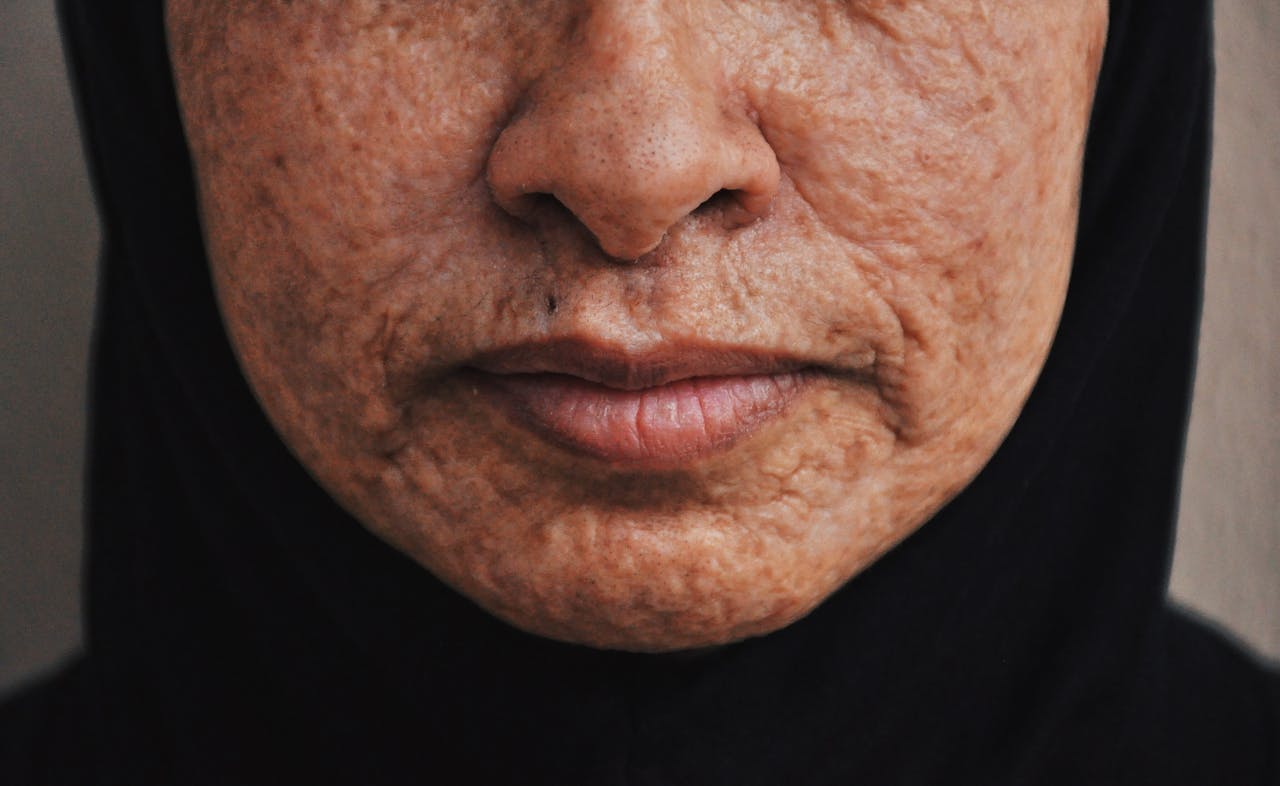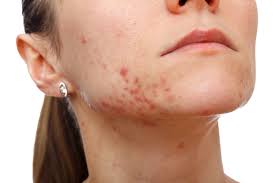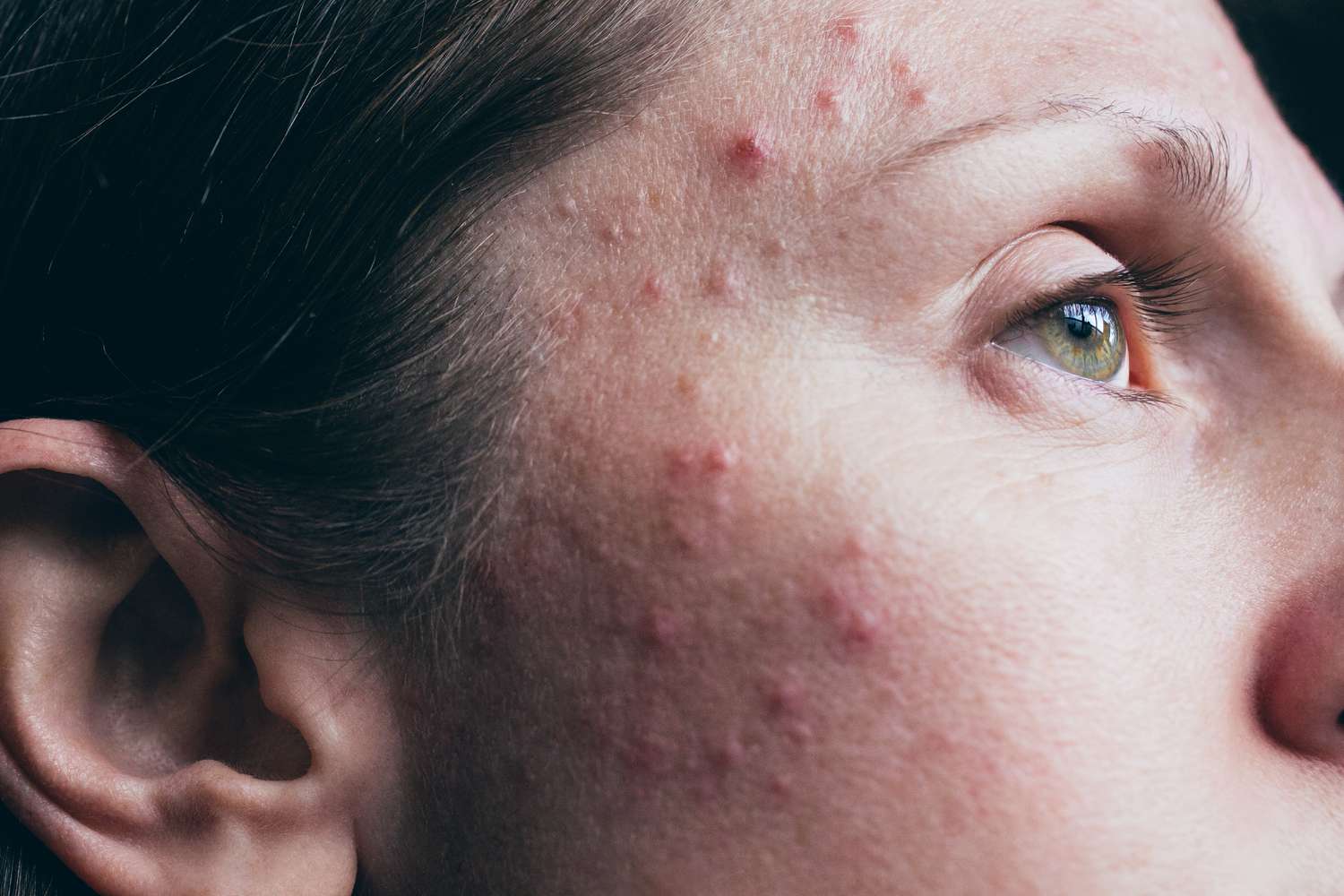Can Iodine Deficiency Cause Acne? What You Need To Know
Acne can be caused by many factors, including iodine deficiency. Here’s what you need to know to address it.
Author:Suleman ShahReviewer:Han JuOct 13, 202411K Shares380.7K Views

The human body cannot operate properly without the trace element iodine, which is especially important for the thyroid gland. Metabolism, brain and bone growth, and hormone synthesis are just a few of the many functions that rely on it. However, does iodine have any bearing on acne.
This article seeks to explain the connection betweeniodine deficiency acneby looking at the possibility that iodine might either help or worsen this skin problem. We will go into several aspects of iodine, including its function in the development of acne, its effects on the human diet, and the significance of iodized salt.
What Is Iodine, And Why Do We Need It?
Iodine is a mineral. It is also a nutrient that is necessary for the thyroid glandto produce hormones called T3 and T4, which help keep the body functioning properly.
Adequate amounts of iodine are necessary, but excessively high levels of iodine can result in either hypothyroidism (the thyroid produces too few hormones) or hyperthyroidism (the thyroid produces too many hormones).
What Are The Signs And Symptoms Of Iodine Deficiency?
The symptoms experienced by your thyroid might help you diagnose an iodine shortage.
Thyroid enlargement is a telltale symptom of iodine insufficiency. The medical term for this ailment is goiter. As it strives to meet your body's increasing need for thyroid hormone, your thyroid gradually enlarges. Some of the signs that could indicate a goiter are.
- Choking.
- Having trouble swallowing.
- Breathing difficulties.
- Hypothyroidism is the primary sign of iodine insufficiency.
When iodine levels drop and thyroid hormone production stops, a condition known as hypothyroidismsets in place. Underactive thyroid is another name for this medical problem. Fatigue, weight gain, and a poor tolerance for cold are symptoms of a slowed metabolism.
When iodine levels are low, other signs might manifest as well.
- The inability to conceive.
- Flabby skin.
- A raspy voice.
- Confusion.
- Cracked, parched skin.
- Thin, coarse hair.
What Causes Iodine Deficiency?
Insufficiency of iodine in the diet leads to iodine insufficiency. Although it is uncommon in the US, iodine deficiency is prevalent in underdeveloped nations around the globe.
Some people don't receive enough iodine from seafood or dairy because they live in locations without water or because they live at higher elevations. Also, not all regions of the globe add iodine to table salt.
The Acne-Iodine Connection
Chocolate and oily foods were long disproved as acne culprits, yet nutrition still affects skin health. One of the major causes is unexpected. Many foods contain it, and you probably add salt to them. A trace mineral called iodine is present in seaweed, seafood, iodized salt, fortified bread, iodine-rich soil, vegetables, fruits, and vitamin supplements.
The thyroid gland uses iodine in the circulation after the body converts it to iodide. The thyroid needs iodides to make hormones. These hormones regulate metabolism and other vital processes. Your baby's bone and brain growth throughout pregnancy need thyroid hormones. Overuse of iodide is eliminated via sweat glands. There, it might cause skin problems.
When ejected, iodide irritates pores and produces acne. The pores of acne-prone skin are more vulnerable. Even clean skin might develop acne in large volumes. In skin research, iodide is utilized to cause acne since it is so strong. For research, a few drops of potassium iodide on the skin causes acne to appear quickly.
Iodine deficiency acnewas formerly a worry for Americans. The answer was to add iodine to table salt, which everyone used regularly. Nowadays, most individuals receive enough from a balanced diet. Note what you're eating and where iodine may be lurking to avoid overdosing.
Types Of Iodine For Skincare Acne
Adding iodine to your skincare regimen may be done in a few different ways. Natural ways to increase your iodine level and thyroid hormone production include eating more iodine-rich foods and taking iodine supplements, both of which are dependable and easy ways to get the advantages of iodine.
Topical Iodine Solutions
A lot of skincare regimens and treatments that use iodine focus on using topical iodine solutions to treat acne. Careful application is required to get the advantages of povidone-iodine topical solution without the side effects of excessive iodine intake.
Thoroughly adhere to the instructions provided on the label of the topical iodine solution. How you apply the topical iodine solution may vary according to its form: powder, cream, spray, liquid, ointment, or soap. If you want the iodine to work its magic, wash your skin first.
Notify your doctor right away if you have any adverse reactions to the iodine solution, such as swelling, discomfort, blistering, dry skin, hair loss, itching, burning, redness, leaking, or inflammation. A medical expert should be consulted in the event of a potentially fatal iodine sensitivity or allergic response.
Iodine-rich Foods And Supplements
If you want healthier skin and more radiant hair without taking an iodine supplement, try eating more foods that are high in iodine. No matter whether you're following a ketogenic or vegan diet or just eating a regular old American diet, these meals will fit right in.
If you want to increase your iodine consumption, some of the greatest meals to consume are:
- Egg whites.
- Cottage cheese, yogurt, and other dairy products that aren't organic.
- Rounded off with fresh prunes, cranberries, and strawberries.
- Algae, clams, fish, shrimp, and shellfish.
- Sea salt that has been iodized.
- Improved dairy substitutes made from plants.
- Lima beans, potatoes, and navy beans together.
Be careful not to consume too little or too much iodine; instead, maintain a steady intake. An adult's recommended daily intake of iodine is about 150 micrograms (mcg).
A higher iodine intake of 220 mcg during pregnancy and 290 mcg when nursing is recommended. Children and newborns have different dietary iodine needs at different stages of life.
Benefits Of Iodine For Skin
Ensuring a sufficient iodine level in the body has dual benefits: it promotes healthy skinand regular production of thyroid hormones. The main advantages of getting enough iodine from food or supplements are these.
Skin Hydration
Consuming an adequate amount of iodine via food aids in controlling sweating and maintains skin moisture. You should not consume too much iodine, but rather the recommended amount. The reverse effect can occur if your body has an excess of iodine.
Body Detoxification
To cleanse your body of harmful halides, such as fluoride, bromide, and chlorine, iodine is an essential component. Multiple diseases, including cysts, fibroids (in various regions of the body), fibrocystic breast disease, and malignancies of the reproductive organs, may be caused by halides. By eliminating halides from your body, iodine may protect you from such ailments.
Taking iodine daily might help your body rid itself of heavy metals including aluminum, cadmium, lead, and mercury. With the help of iodine, your body can eliminate these harmful substances.
Skin Healing
Iodine, a natural antiseptic, helps hasten the healing of wounds and scars. Helps the skin restore itself, speeds up the healing process of scars and imperfections, and prevents infection.
Skin Rejuvenation
The skin, nails, and hair may all benefit from iodine's ability to promote health. The lower dermal layers benefit from its effects on cellular activity and regeneration. Iodine may give you a flawless complexion, healthy hair, and strong nails by regenerating the skin from the inside out.
Your hair follicles and hair development are both aided by a sufficient amount of iodine in your body. For this reason, thinning or hair loss may result from a shortage.
Do Dermatologists Recommend Using Iodine For Acne?
Experts do not advocate using povidone-iodine to get rid of acne and pimples since there is a lack of evidence to support its safety and efficacy for this goal. This is even though it may not do too much damage to the person who uses it.
Alternative Ways To Prevent Acne And Treat Breakouts
Although iodine is not something that they would prescribe to individuals who are having trouble controlling their acne. At-home self-care may be accomplished in several different ways, including the prevention and management of breakouts.
- Daily, consume a lot of water.
- Make sure that you do not touch your face with your hands.
- You should gently wash your face up to two times a day, particularly after you have worked out or sweated.
- Before going to bed, remove your sunscreen and makeup.
- When necessary, moisturize your skin, but just apply the amount that is required.
- Makeup and face cosmetics should be used as little as possible.
- It is important to refrain from popping or picking at acne.
- Apply salicylic acid or benzoyl peroxide-containing topical lotions to the affected area.
Frequently Asked Questions
Does Iodine Affect Acne?
Although rare, iodine-sensitive people can develop acne breakouts, rashes, or other skin reactions from iodized table salt (Himalayan salt is not iodized) or supplements like multivitamins and kelp.
Does Iodine Deficiency Acne Cause Skin Problems?
Insufficient iodine may cause acne and dry, flaky skin. Low iodine levels may also impair sweating, drying the skin.
Does Iodine Clear Skin?
Antiseptics like povidone-iodine are used to clean the skin of germs and bacteria before surgery, but doctors claim there is no proof that it clears acne and pimples.
Can Iodine Cause Acne Breakouts?
While it's rare, some people's skin may react negatively to iodine in dietary supplements, iodized table salt (specialty salts like Himalayan salt are usually not iodized), or even some multivitamins and kelp supplements. This can lead to acne, rashes, or other skin problems.
Does Iodine Help Clear Acne?
Using iodine to reduce the size of acne scars may result in longer-lasting results. Although iodine is helpful as a disinfectant in medical settings, it may cause inflammation and irritation to the skin, according to a dermatologist. To avoid infection and dry out pimples, he suggests benzoyl peroxide.
Conclusion
Iodine deficiency acne affects the health of your skin and, by extension, your body as a whole. In addition to revitalizing your hair and skin, iodine aids in other bodily processes by controlling thyroid hormone levels and metabolism. You could have hypothyroidism if you do not get enough iodine. Insufficient production of thyroid hormone by the human body characterizes this disorder.
Jump to
What Is Iodine, And Why Do We Need It?
What Are The Signs And Symptoms Of Iodine Deficiency?
The Acne-Iodine Connection
Types Of Iodine For Skincare Acne
Benefits Of Iodine For Skin
Do Dermatologists Recommend Using Iodine For Acne?
Alternative Ways To Prevent Acne And Treat Breakouts
Frequently Asked Questions
Conclusion

Suleman Shah
Author
Suleman Shah is a researcher and freelance writer. As a researcher, he has worked with MNS University of Agriculture, Multan (Pakistan) and Texas A & M University (USA). He regularly writes science articles and blogs for science news website immersse.com and open access publishers OA Publishing London and Scientific Times. He loves to keep himself updated on scientific developments and convert these developments into everyday language to update the readers about the developments in the scientific era. His primary research focus is Plant sciences, and he contributed to this field by publishing his research in scientific journals and presenting his work at many Conferences.
Shah graduated from the University of Agriculture Faisalabad (Pakistan) and started his professional carrier with Jaffer Agro Services and later with the Agriculture Department of the Government of Pakistan. His research interest compelled and attracted him to proceed with his carrier in Plant sciences research. So, he started his Ph.D. in Soil Science at MNS University of Agriculture Multan (Pakistan). Later, he started working as a visiting scholar with Texas A&M University (USA).
Shah’s experience with big Open Excess publishers like Springers, Frontiers, MDPI, etc., testified to his belief in Open Access as a barrier-removing mechanism between researchers and the readers of their research. Shah believes that Open Access is revolutionizing the publication process and benefitting research in all fields.

Han Ju
Reviewer
Hello! I'm Han Ju, the heart behind World Wide Journals. My life is a unique tapestry woven from the threads of news, spirituality, and science, enriched by melodies from my guitar. Raised amidst tales of the ancient and the arcane, I developed a keen eye for the stories that truly matter. Through my work, I seek to bridge the seen with the unseen, marrying the rigor of science with the depth of spirituality.
Each article at World Wide Journals is a piece of this ongoing quest, blending analysis with personal reflection. Whether exploring quantum frontiers or strumming chords under the stars, my aim is to inspire and provoke thought, inviting you into a world where every discovery is a note in the grand symphony of existence.
Welcome aboard this journey of insight and exploration, where curiosity leads and music guides.
Latest Articles
Popular Articles



